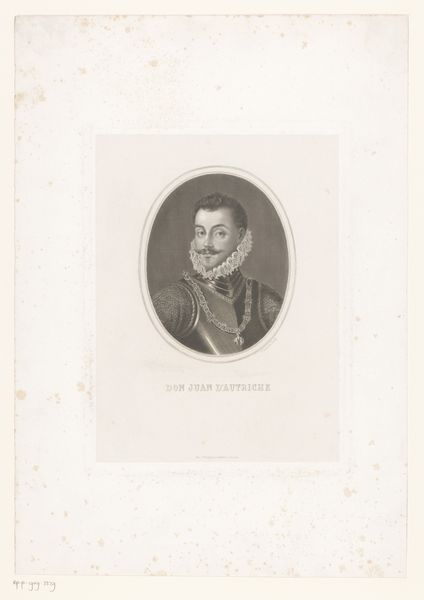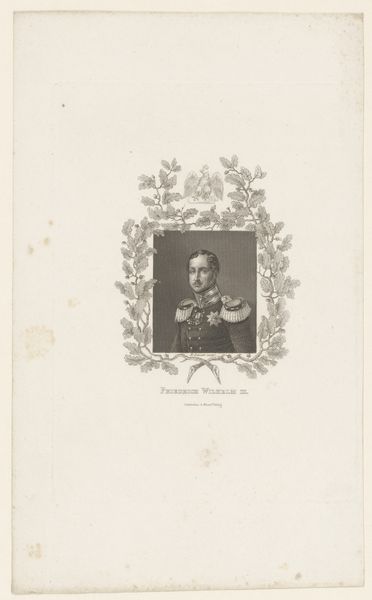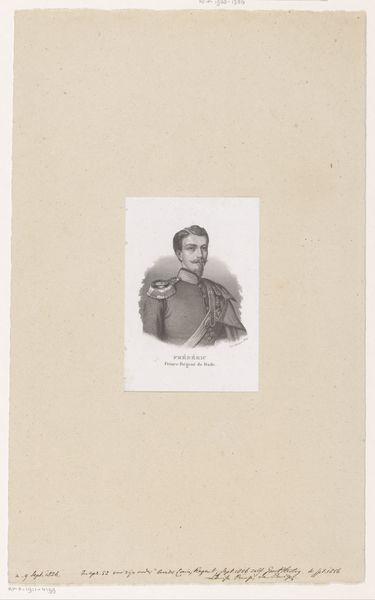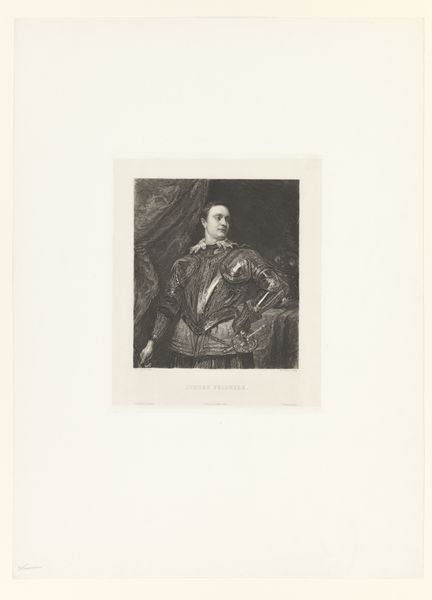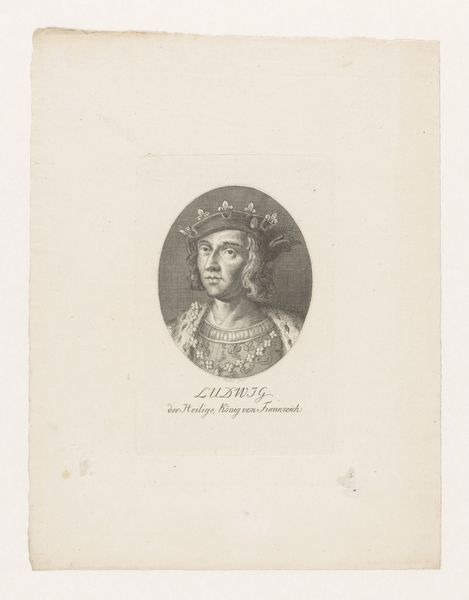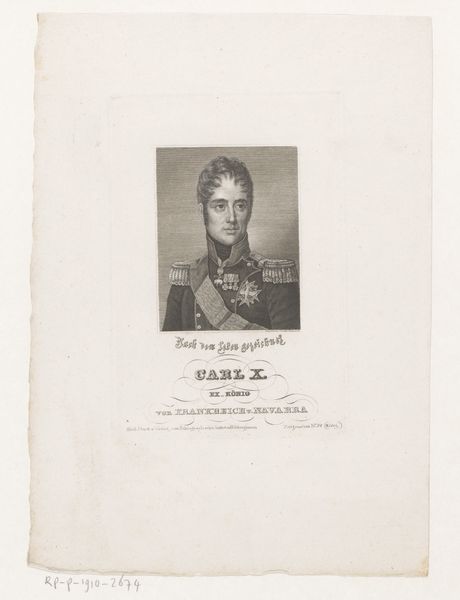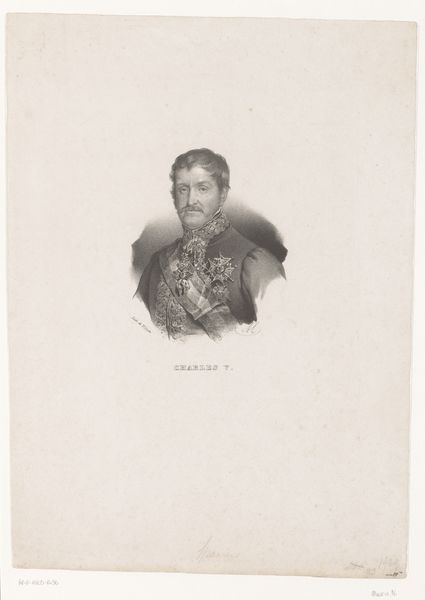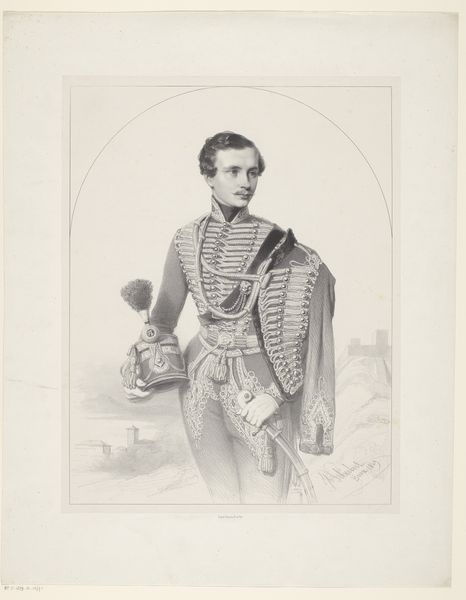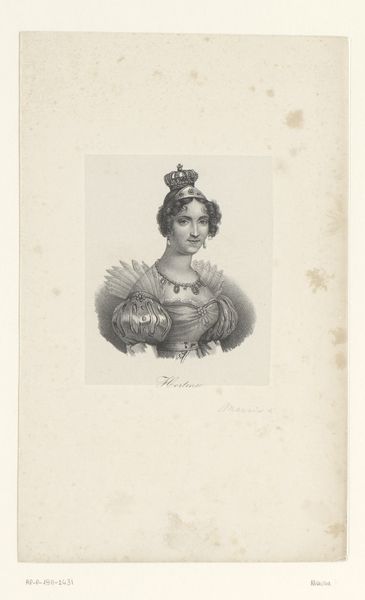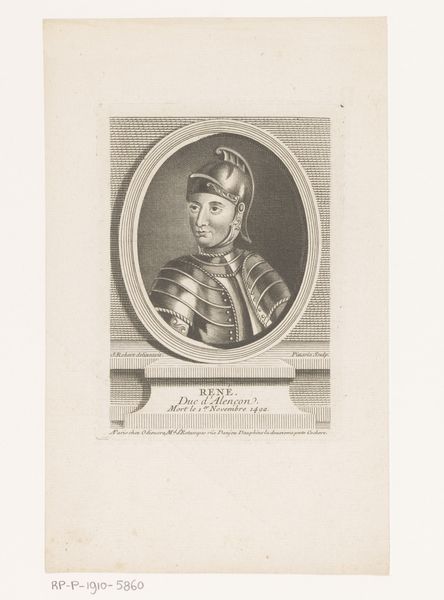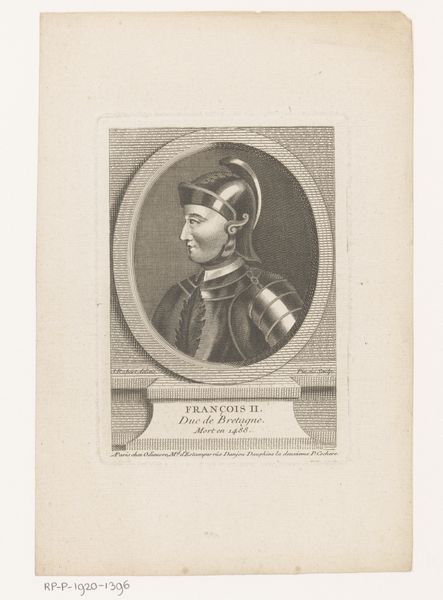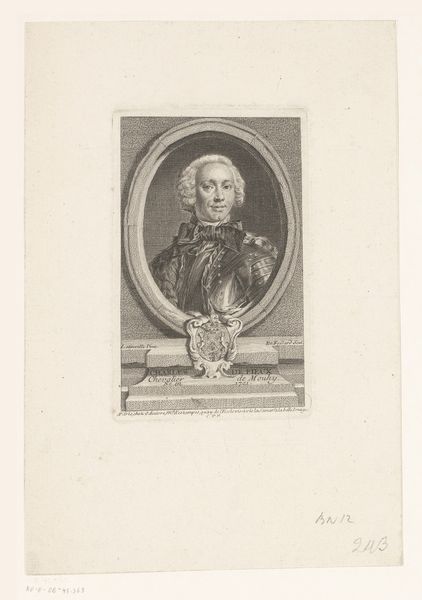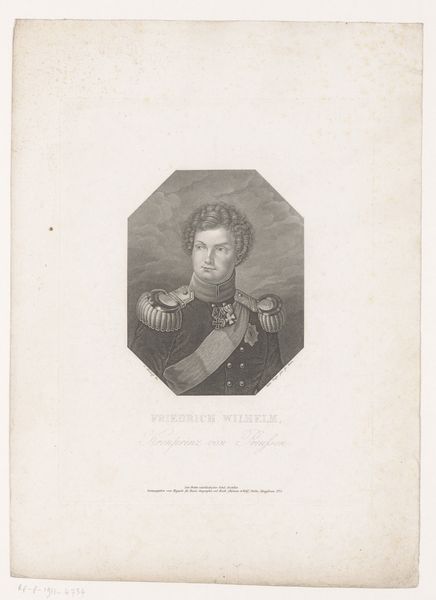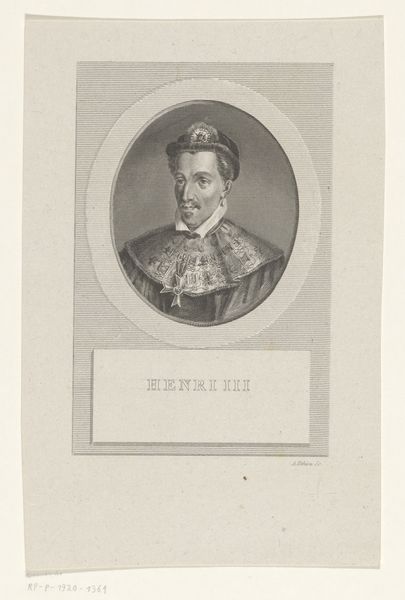
engraving
#
portrait
#
neoclacissism
#
old engraving style
#
classical-realism
#
historical photography
#
history-painting
#
academic-art
#
engraving
Dimensions: height 534 mm, width 393 mm
Copyright: Rijks Museum: Open Domain
This portrait of Frederick William III of Prussia was rendered by François Forster with a technique called line engraving. In this meticulous process, the image is incised into a metal plate, typically copper, using a tool called a burin. The depth and density of the lines determine the tones and textures of the final print. Here, you can see how Forster skillfully manipulated the burin to create the crisp details of the king’s uniform. Engraving demands immense skill and patience. Each line requires a deliberate and precise cut. The method was popular for reproducing images widely and permanently. The resulting prints allowed for the dissemination of Frederick William's likeness, reinforcing his image and authority throughout the Prussian kingdom. Consider the labor that went into producing each impression. Each one speaks volumes about the relationship between art, craft, and power in the 19th century.
Comments
No comments
Be the first to comment and join the conversation on the ultimate creative platform.
